In a series of interviews, club owners, managers and industry pros across America respond to the Mons Venus near-mass-shooting with their own preventative and responsive security plans.
W
hen Manny Resto, head of security at Mons Venus, last month in Tampa, Florida, deterred what would have been the first mass shooting at a strip club in US history, it was a cause for celebration — not all bad guys win, especially when a good guy like Resto is trained and determined to do his job efficiently (Resto, a wrestler, street fighter and professional security guard with decades of experience, had the assailant under control in under a minute, according to the security camera footage); and second, it was cause for clubs across America to reconsider the reliability of their own security approach, whether or not it’s up-to-date with the modern weapons available to citizens today, and whether it would stand the ultimate test: to stop a shooter without casualty.
ED Legal Correspondent Larry Kaplan spoke with industry professionals Jason Mohney, Shane King, Gary Sikorski, Curtis Wise, Steph Wilbanks, David Bailey and Rich Bantock about how they received the news and what effect it has had on their security approach. In this interview series, club overseers across the country share what changes were already in-progress before the event that could have cost hundreds of lives, as well as what work still needs to be done to ensure every customers’ safety in the future.
JASON MOHNEY
Owner and Founder of GoBEST! as well as the owner of 30+ adult nightclubs
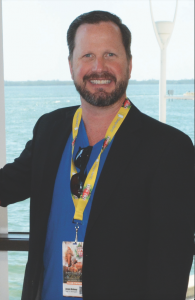
ED: Were you surprised when you heard about this potential mass shooter catastrophe that a heroic security guard at Mons Venus in Tampa averted?
MOHNEY: Yeah, you never expect our industry to be targeted, because we’re some of the happiest places on Earth. At our clubs, anybody can feel special; anybody can feel wanted. That’s what we sell is the fantasy. So it’s terrible that these incidents happen anyway, but that’s why training and security programs are so essential. As you can see, security guards are necessary. But, obviously, in this situation and so many other situations, if they had the proper training and security in the first place, these issues wouldn’t happen.
We’re in the process of putting all of our club employees system-wide through Strategic Club Consultants concierge customer service, de-escalation, security and active assailant training seminars. And we feel these seminars are integral to proper, safe club operations, so we offer them to all of our nightclub and hospitality clients through my GoBEST! company.
ED: Initially, what motivated you to provide live, in-person seminars for your people around the country rather than just trainings over Zoom?
MOHNEY: Just being around intelligent people, like yourself, and my friends, Chuck Wilson, Gary Sikorski, and Mike Ocello, and having those conversations about the fact that there are some things we could do differently or do better. And then, carrying through on those, talking to our managers and partners about what we need to do to do a better job, so let’s do that. The programs are out there; it’s just taking the time and expense to do them. The difference is I’m not afraid to invest in these programs or people to prevent these adverse outcomes. As you say in your seminars, everything is worth it if we can save one life.
ED: Do you feel your staff in New Orleans is now better prepared for a mass shooter event, having gone through the concierge customer service, de-escalation, security and active assailant training seminars?
MOHNEY: I believe so. I think it’s continued training; I don’t think it’s a one-and-done situation. You have to keep looking for and evolving the information. This is an ever-changing field, just like cybersecurity and many other areas. So you’ve got to keep on running the programs and keep educating people.
SHANE KING
GM of Larry Flynt’s Hustler Club New Orleans
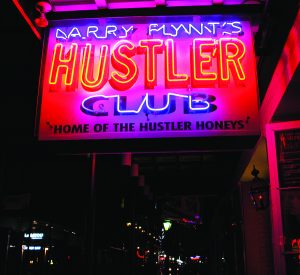
ED: Were you surprised at the incident itself, that you had a mass shooter, a guy coming in with a mask and leaving his truck running, ready to shoot up the place, run out and drive away?
KING: No, it was not surprising. It’s not like I’m expecting a mass shooting incident or anything like that very often. But we see so much violence on Bourbon Street. We had an incident with two guys at Mardi Gras. One of the guys attacked one of my guys. They blew through the lobby and were smashing stuff. And one of those guys kept holding up a voluntary sheriff’s deputy card, saying he was law enforcement. They wanted to get in because a drink was spilled on them from the balcony during Mardi Gras, and they wanted to settle the score. We didn’t let them in; we explained that that wasn’t an option. Then the guy just jumped one of my guys. And then, they were fighting in a corner, and when we tried to break it up, the other guy jumped another one of my guys to try and keep him away. So, it’s part of New Orleans: we’re just always grateful that things aren’t worse.
We kicked a guy out the other day. He said he was in his 60s. When we kicked him out, he kept walking back and forth right in front of me, which was fine until he started digging in his pockets, waving something around, and threatening bloodshed. I didn’t feel like he was a terrible threat, but at the same time, you don’t need a lot of power to stab someone to death. You just need to be quick enough and have a blade.
ED: So after going through the two in-person seminars by Strategic Club Consultants, the concierge customer service/de-escalation/security seminar and the active shooter seminar, do you feel like you and your people are better prepared in the event of a mass shooter event?
KING: Yes. The training was beneficial. Unfortunately, I’ve lost some of those people who attended the seminars. It’s definitely something we need to go through again. One of the things I’m dealing with currently, because the guys I have are relatively new, is trying to get them to learn how to pay attention. Because it’s kind of like Manny, the Mons Venus security guard, said in the interview: he said that people were distracted; they were on their phones. It’s not that these new security guys are on their phones or anything, they’re just not used to multitasking, to looking across the whole street, trying to see problems at both ends. You know, you’re just cataloging a ton of information, and a security position is way more complicated than most people realize.
We might be the only club that actually wands customers, but I believe it’s crucial.
ED: Exactly, unless you’re proactive, you won’t see it until it happens. But, if you’re always looking at body posture and all that stuff, you’ll have some warning.
KING: Yes. We also got some interesting stuff from Micheal Ocello. He brought some things I hadn’t seen or heard before, outside of my own reading, especially some of the psychology, which I found helpful.
ED: How is your relationship with law enforcement these days? Hospitality businesses on Bourbon Street have frequent challenges. What kind of response do you get when you’ve had significant problems?
KING: Rather than calling 911, I feel better forming relationships with the beat cops and detectives on the street. We’ve gotten to know a detective who helped us with several incidents. Because of that, we’re on good terms, and we have a kind of connection. He stops by and talks to us at the club. I try to stay on pretty good terms with them. Some of our New Orleans managers have closer relationships with the police command officers, and that’s good.
GARY SIKORSKI
Director of Training with Strategic Club Consultants (club security training)
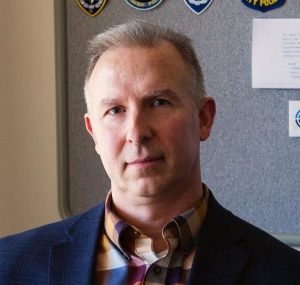
ED: Do you think the presence of security processes and personnel in place is possibly off-putting to customers?
SIKORSKI: I think the public’s appetite for and acceptance of security has definitely increased. Rather than causing concern, it generally reassures the guests that once they are inside, they are in a safer environment and can enjoy themselves without constantly looking over their shoulders. It is becoming something that guests expect to see.
ED: Do you think club owners must plan ahead for potential catastrophic events if they already have security in place?
SIKORSKI: Club owners and staff should move from reactive to proactive in preparing for crises, including active assailant incidents. The mindset should be when/then, not if/then. It is not a matter of ‘if,’ but a matter of ‘when.’
Maintaining situational awareness is crucial; training is the best way to ensure that. Security staff must be aware and in the proper position to be a ‘trip wire’ and serve as early detection to be ready to react to avoid and deter an incident.
ED: What about after a mass shooting? Is there a roadmap for what a club must do then?
SIKORSKI: While it’s essential to be proactive and have a plan in place in advance of an active assailant, you also have to have an organized plan for the after-action, notification, and recovery. You need to know what to do three minutes, three hours, three days and even three months after such an event.
I’ve been part of the response team for several mass shootings nationwide and, thankfully, been involved in averting countless others. We’ve evolved an action plan for the aftermath of a catastrophic event. We now conduct seminars on how to do that preparation in addition to our other proactive seminars for adult clubs.
CURTIS WISE
Owner and Founder of Bucks clubs (12 venues)

ED: Were you surprised at this potential catastrophe that was averted at Mons Venus when this heroic security guard stopped an armed mass assailant?
WISE: Absolutely. While I was surprised on the one hand, in dealing with the public in our business, you must always have your head on a swivel and pay attention; you can’t ever let your guard down. But, on the other hand, if you go back to the beginning of the Covid lockdowns, society has become much more restless. I believe we have more mental illness as a population than we had three years ago. So my thought is, number one, you follow all your guidelines for your doorman and others and hope you’re never in that situation; and number two, you hope you can avert such a crisis.
ED: You have clubs in different economic strata, some more upscale than others. I don’t think that’s a determinant at all. Mons Venus is in Midtown Tampa; it’s not a rough club nor a rough neighborhood. As you’re saying, this could happen anywhere, anytime.
WISE: Absolutely. I think it’s random as to where it can happen. We’re seeing more road rage, violence and things of that nature just in general. There was an incident just this week at 7:15 a.m. within three-four miles of my house. It’s a pretty upscale area, and the guy shot a lady in the neck. She survived, but it demonstrates that violence can break out in random areas at the drop of a hat.
From the club’s standpoint, the number one thing that we stress, and our people will continue to stress, is, ‘Be nice, be nice, be nice,’ even when you’re not letting somebody in for dress code or removing somebody from the club. Do everything you can to be nice, even when they’re not nice back. With our business, we take a lot of verbal abuse. But taking the verbal abuse doesn’t hurt anyone.
“From the club’s standpoint, the number one thing that we stress, and our people will continue to stress, is, ‘Be nice, be nice, be nice,’ even when you’re not letting somebody in for dress code or removing somebody from the club. Do everything you can to be nice, even when they’re not nice back.”
– Curtis Wise
STEPH WILBANKS
Director of Operations for Pony Clubs’ 30+ clubs
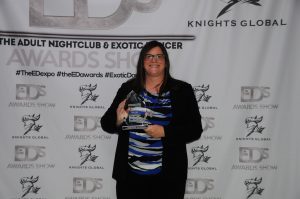
ED: Were you surprised at the potential catastrophe that was averted at Mons Venus when the heroic security guard stopped a masked armed assailant from entering?
WILBANKS: I think that all comes down to great training. We strive to do that daily in our clubs to ensure that our customer service and security staff are aware of their surroundings and stay focused. It’s even harder these days to keep people off their phones and paying attention to the details of the parking lot. The front door position is vital, and it’s often catastrophic if it’s not filled. Could you imagine if they hadn’t had a door guy there or if the door guy had been on the inside? It’s all about ensuring we keep an eye on what’s happening both inside and outside the club. We make that a top priority at the Pony Clubs. We always watch people coming in and out of the parking lot, how long they’ve been in their cars, and all sorts of things like that.
ED: Did the incident surprise you that something like that would happen in an adult club?
WILBANKS: Definitely. You think of our establishments as places of relaxation. And while sometimes customers become upset with an entertainer because they thought she would be their girlfriend one day or things like that, I’ve never gone to work and thought, ‘Well, somebody will come in and shoot us today.’ We do have gun incidents, and they’re not a new thing. People go to their cars and pull guns out sometimes. Those incidents are more common than they should be. But at the same time, I think it will always be shocking.
ED: Based on the incident at Mons Venus, does this change your thoughts on the possibility that something could happen to one of your clubs?
WILBANKS: I think it does raise awareness that we need to have mass shooter plans in place to train our people about what to do, where exits are, how to get to the safest place inside the building and how to react. It has definitely raised some awareness for us to do that.
ED: What kind of relationships do you have with local law enforcement in your cities? Would you feel confident in the responses you would get if you called in with an active shooter incident?
WILBANKS: We take an active interest in having good relationships with law enforcement in our local areas. So I’m confident we would get excellent support in every area we’re in.
DAVID BAILEY
Owner and Founder of Library Clubs in Southern California and Las Vegas
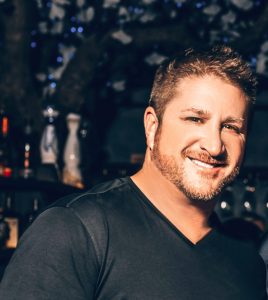
ED: Were you surprised at the potential catastrophe that was averted there when the security guard stopped this masked, armed assailant from entering the club?
BAILEY: That’s a ballsy move that the security guy made because most of these guys don’t get paid enough to put their lives on the line for what they do. I’ve told all my guys if someone comes in with a gun, give them whatever they want, and move on. Don’t try to stop it; just let them go.
People are crazy now; you never know what you’ll get. We had a customer at our Redlands Club walk outside. The general manager came out, grabbed a Corona from him, and said, ‘Sorry, you can’t have drinks outside.’ He told him, ‘Either pound it, or I must take it from you.’ The customer told the GM to ‘Fuck off,’ so our guy took the bottle and threw it away. The customer then took his shirt off, went to his car, grabbed a shotgun and approached the front door. At the time, we had a paid, armed security guy, Mr. Kim, at that club. The guy cocked the rifle and pointed it right at Mr. Kim, who took the gun away and shot the guy twice in the leg. The man dropped his gun, the cops came and they arrested him for attempted murder. Mr. Kim got an award from the city for protecting people.
“We had a customer at our Redlands Club walk outside. The GM came out, grabbed a Corona from him, and said, ‘Sorry, you can’t have drinks outside.’ The customer told the GM to ‘Fuck off,’ so our guy took the bottle and threw it away. The customer then went to his car, grabbed a shotgun and approached the front door. We had an armed security guy, Mr. Kim. The guy cocked the rifle and pointed it right at Mr. Kim, who took the gun away and shot the guy twice in the leg. The man dropped his gun, the cops came and they arrested him for attempted murder.”
– David Bailey
ED: Do you pat customers down at your clubs?
BAILEY: We never thought about patting people at our Orange County clubs. In my younger years, if I went to a strip club where they patted me down, I would think differently about the club; that was the mindset. Before the pandemic, I thought patting people down was for shitty clubs. But during the pandemic, we started patting everybody down because of this craziness that was going on. So we’ve continued to do it, and it’s actually made people feel safer because then they know that everybody inside this building doesn’t have anything that will affect their night. And nowadays, that’s more important to people; it’s like a safety net.
ED: Does this change your thoughts on the possibility of similar incidents occurring in any of your clubs?
BAILEY: Anything’s possible, and you must be prepared for anything. I don’t foresee it, but eventually, something stupid happens. We had a guy who took out his gun — he didn’t expect it to go off, but it did go off in the parking lot. And that was a younger customer just doing dumb shit. Fortunately, nobody got shot. But, you get these guys with these egos, I don’t know if it’s a self-esteem thing or what. These guys are just trying to show how tough they are. And, unfortunately, bad stuff happens. I mean, sure, we’re prepared if anything happens, but at the same time, what does that mean?
ED: Exactly. From a training and operations perspective, what have you done to ensure your staff is prepared for a mass shooter event?
BAILEY: A lot of it’s just common sense. No matter how much preparation you do, you’re never prepared for it. I think people go into fight-or-flight mode, and we’ve never experienced that out here, so I don’t know what would happen. We’ve discussed it, but at the same time, is anybody really prepared for that to happen?
ED: What kind of a relationship do you have with local law enforcement in your communities? Would you feel confident in the response you would get if you called and told them that you had a mass shooter event?
BAILEY: We would because all three of our California clubs are a non-issues for the cities. Generally, we handle everything internally and never need the police. It’s a question of really hiring the right people. Many places still hire big guys because they think they’re scary. I have many small guys that know how to talk big.
And the police know that we handle things properly. They know our security people and come through the parking lot regularly just to say, ‘Hi.’ They’re not trying to hit us up or anything. A few of them come to my house for Super Bowl and July Fourth.
RICH BANTOCK
Club owner for 24 years of Silks, Palm Harbor, FL
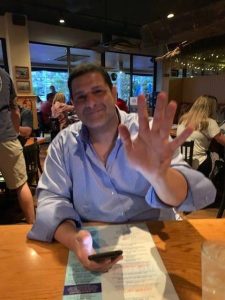
ED: Were you surprised at the potential catastrophe that was averted at Mons Venus when the heroic security guard stopped a masked, armed assailant from entering the club?
BANTOCK: No, I wasn’t surprised. I’ve always thought something like that could happen anytime, anywhere, whether it’s an adult or non-adult venue, it doesn’t matter.
When somebody leaves a club after a bad experience, whether with an entertainer, staff or for any number of reasons, there’s always that potential that they might come back and do something terrible. That’s always been my concern because I’ve been on the front lines of my club, maturing it and being involved in every aspect; I’ve actually witnessed customers threaten to come back for retribution. I’ve seen people make the gun symbol like they’re coming for you, that kind of thing. It gets in your head. What can you do to stop them? The best thing Mons Venus did was to have the gatekeeper security guy outside the front door. If he hadn’t been there, we don’t know what could have happened once the assailant got inside the club. And when people aren’t expecting anything, that’s the worst thing. All of a sudden, chaos begins. You’ll never get control of your patrons. Will your entertainers pay attention to you? People will panic: they could start running, making assumptions. And the crowd could trample someone or worse. What does your staff need to do regarding an active shooter issue?
The most helpful coverage for other operators was seeing the recording of the incident from the security cameras at Mons. That visualization brings it all home, and you realize, ‘Jesus, this could happen outside my club.’
ED: What kind of relationship do you have with local law enforcement? Do you feel confident in the response you would get if you called them with such an incident?
BANTOCK: We feel highly confident in our local law enforcement people. We’ve tried to develop relationships with them. We try to chat with them and not discourage them from coming to the property if they want to do a drive-through.
ED: Mons Venus is not considered a rough club, and Dale Mabry in Midtown Tampa is not a bad neighborhood. Your club is in an upscale neighborhood, as I recall.
BANTOCK: That’s correct. I don’t think it matters what neighborhood you are in. People who make those decisions come from various economic backgrounds; you just don’t know. I recall a lady in a very high-end Tampa neighborhood who was schizophrenic. She ended up killing her two kids.
ED: What steps have you taken from a training and operations perspective to ensure your people are prepared to deal with a mass shooter entering your club?
BANTOCK: We have security outside the building and food people outside; they all have radios. Also, they’re watching people come in; hopefully, they should see something that doesn’t look right. Maybe they’ll be able to stop them, create that little bit of delay where somebody can call the authorities to kind of head them off at the pass. We record everything 24 hours a day, and people in the office can see what’s on the cameras. So if there’s any struggle, hopefully, they can make those calls. Every staff member in our club has a radio now. The whole idea of the radio was to prevent having to leave the scene of an incident to report it.
ED: Do you do any kind of de-escalation training for your staff, or have policies in-place now?
BANTOCK: We always tried to de-escalate everything. We tried to talk them down and be accommodating. So, for example, if there’s an issue and somebody’s bill is under $100, we let them go; it’s not worth the headache.
Larry Kaplan has for 22 years been the Legal Correspondent for ED Publications. In addition, Mr. Kaplan is a business broker in the sale and purchase of adult nightclubs and adult retail stores and the Executive Director of the ACE of Michigan adult nightclub state trade association. Contact Larry Kaplan: at 313-815-3311 or email larry@kaplanclubsales.com.





























